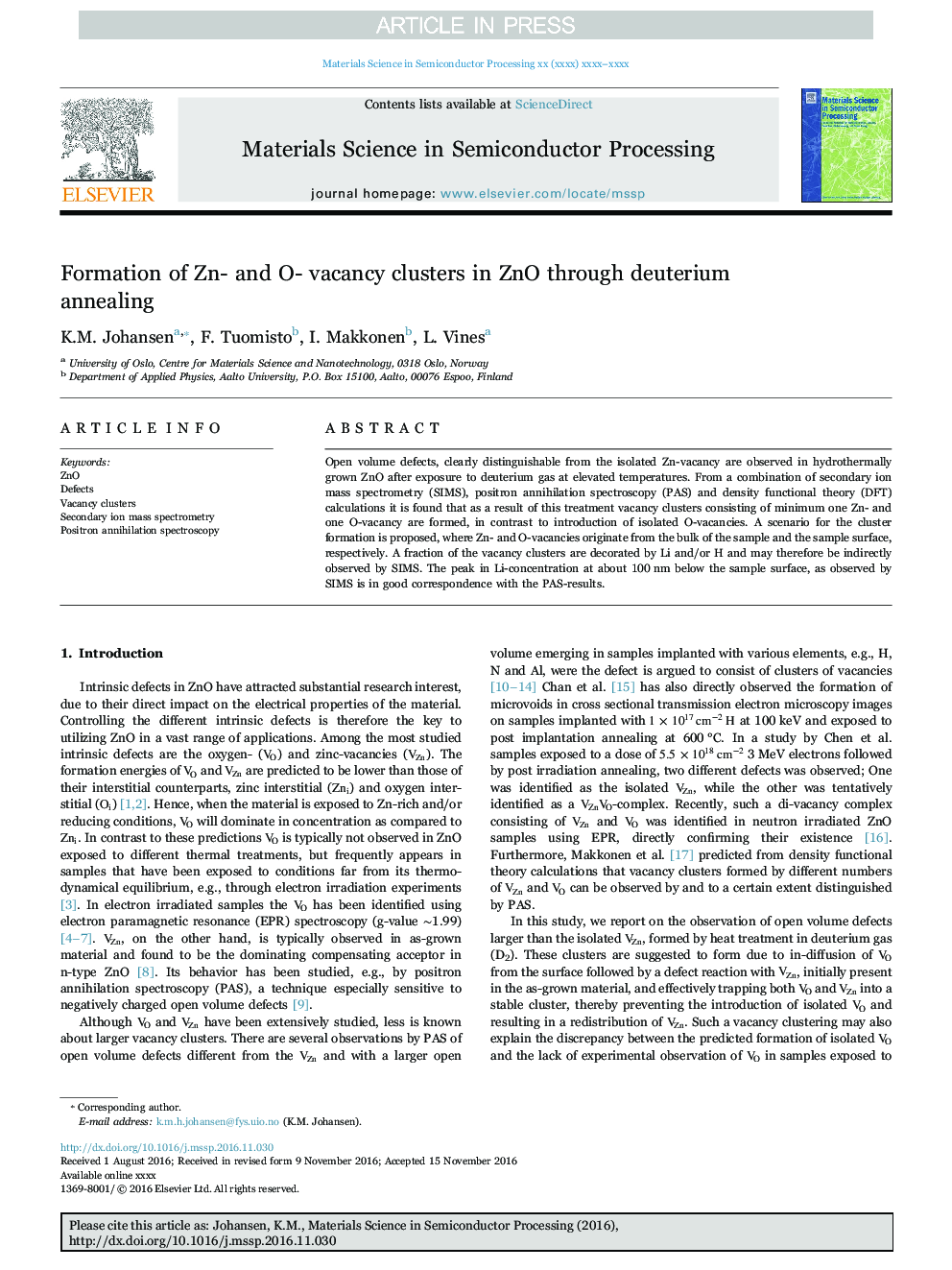| Article ID | Journal | Published Year | Pages | File Type |
|---|---|---|---|---|
| 5005993 | Materials Science in Semiconductor Processing | 2017 | 5 Pages |
Abstract
Open volume defects, clearly distinguishable from the isolated Zn-vacancy are observed in hydrothermally grown ZnO after exposure to deuterium gas at elevated temperatures. From a combination of secondary ion mass spectrometry (SIMS), positron annihilation spectroscopy (PAS) and density functional theory (DFT) calculations it is found that as a result of this treatment vacancy clusters consisting of minimum one Zn- and one O-vacancy are formed, in contrast to introduction of isolated O-vacancies. A scenario for the cluster formation is proposed, where Zn- and O-vacancies originate from the bulk of the sample and the sample surface, respectively. A fraction of the vacancy clusters are decorated by Li and/or H and may therefore be indirectly observed by SIMS. The peak in Li-concentration at about 100Â nm below the sample surface, as observed by SIMS is in good correspondence with the PAS-results.
Keywords
Related Topics
Physical Sciences and Engineering
Engineering
Electrical and Electronic Engineering
Authors
K.M. Johansen, F. Tuomisto, I. Makkonen, L. Vines,
